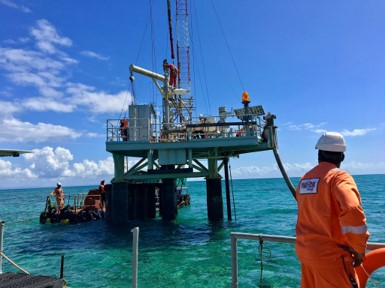Three Trends Impacting Oil and Gas Workforce In Tanzania and East Africa
The oil price crash of 2014 to 2016 have played a key role in the industry’s workforce restructuring.
Merger and acquisition have also impacted East African oil and gas workforce. The most recent announced merger and acquisition deal was the Indonesian company, Medco Energi’s $539m acquisition of Ophir Energy on May 2019.
Furthermore, on February 2016, Royal Dutch Shell acquired BG Group for US$ 50 million. The takeover gave Shell 60% of BG’s block 1 and block 4 offshore Tanzania.
These mergers and acquisition deals have significantly impacted the oil and gas workforce in Tanzania and East Africa.
Even as oil prices began to recover in 2017 and 2018, the industry remained focused on managing costs, productivity, high performance of the workforce and that is expected to continue in 2020 and beyond.
This article examines the impact of key trends and brief analysis on how these trends will reshape the skills of the East African oil and gas industry in 2020 and beyond.
Let us face them.
- Technological advances leading to growth of new skills
Oil and gas companies are adopting new technology to lower cost, increase productivity and improve operational efficiency. An increased use of measurement-while-drilling (MWD) and logging-while-drilling (LWD) tools which collect data during the drilling process could improve drilling accuracy.
In addition to that, following the latest technology in geophysical services (also known as seismic and data acquisition) such as pre-stack depth migration algorithm like Kirchhoff, Beam, Kirchhoff least square migration or RTM (Reversed Time Migration) could help increasing the East African reserves volumetric calculations.
These types of technology will create a need for workers with a background in geology, geophysics, reservoir engineering and well completion engineering and Geosciences.
So if you are those companies that don’t want to change the way that you develop and train your people to use new software and new technology in the oil and gas industry, You are going to be left behind.
- Regulatory changes
With new regulations and the need for compliance, the oil and gas industry will require those with expertise in compliance and regulations such as regulatory professionals. Also, today’s oil and gas workers must be aware of the regulatory and compliance of existing and planned oil and gas projects.
- Construction employment tied up in oil and gas industry
The development of liquefied natural gas (LNG) facilities and oil and gas pipelines in East Africa creates needs for project leaders and project managers and engineers
Although Tanzania is in the early-stage planning and development of a new liquefied natural gas (LNG) export facility. This LNG project will have an increasing requirement for project and construction managers, project engineers and regulatory professionals as well as the expertise of expatriates who have planned and developed LNG in other parts of the world
Final Words
These trends have long term impact on the oil and gas industry workforce and human capacity development frameworks in East Africa by adopting performance improvement mindset across the industry and ensuring training programs offered are directly linked to organizations goals, objectives and visions.
To address challenges and opportunities in East Africa, local oil and gas industry requires new arrays of skills, knowledge and expertise for workers. By realizing how the technology, financial constraints and market competition is impacting our local oil and gas industry.
And if you are a regular reader of our articles, you know that one of my biggest goals for Tanzania Petroleum is for us to become the knowledge body of East African oil and gas industry and raise the performance standards of work competence of Tanzania and East Africa oil and gas industry to become world-class and internationally competitive. So we address these challenges by developing and training professionals to improve their performance at work place, increase staff productivity and enhance business profitability.



